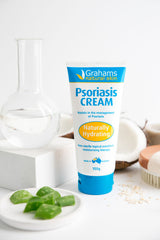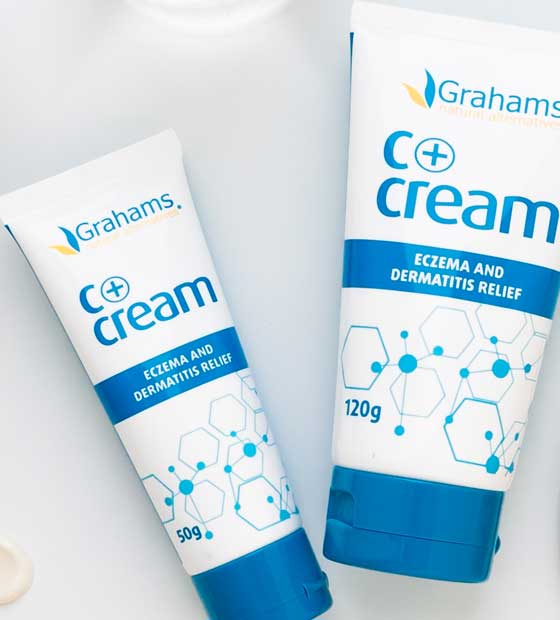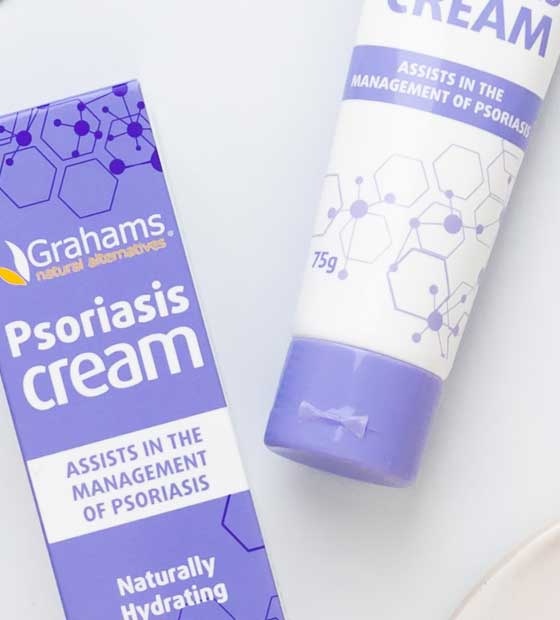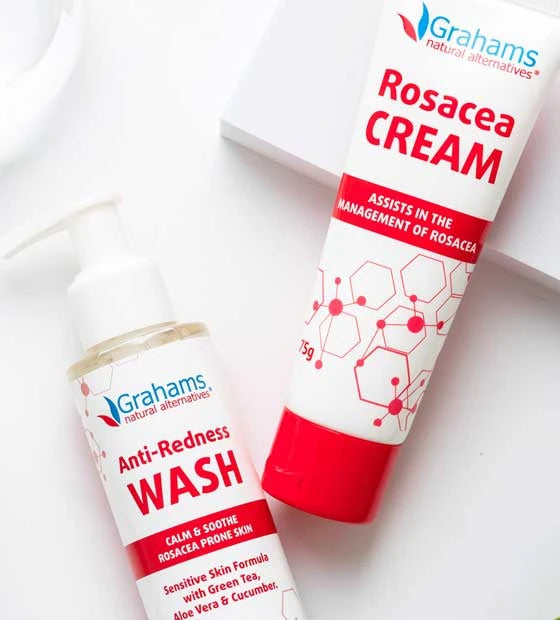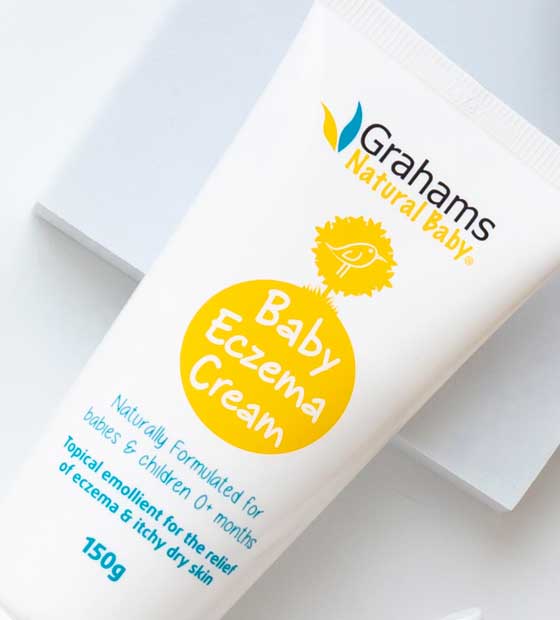Psoriasis
Psoriasis
What is psoriasis?
Psoriasis is an autoimmune condition that commonly presents itself in the form of scaling and redness of the skin. Psoriasis occurs when there is an intensified production of the skin, accumulating in white patches on the knee, elbow and scalp areas. It can also have an impact on the joints but in most cases, outbreaks come in the form of patches known as psoriatic plaques. Contrary to popular belief, psoriasis is not the same as eczema (although often confused), and it is not contagious.
Symptoms
The symptoms associated with psoriasis are often confused with eczema, you can read more about eczema here. Typically the skin on the area affected by psoriasis comes with a silver or white color. Other symptoms may include:
- Patches of skin that are dry, inflamed or red
- Flaky skin
- Itchy skin
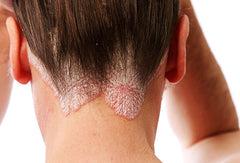
A doctor should be able to diagnose psoriasis with a simple visual check up. There is no need to perform special tests or other medical procedures to diagnose this condition, however, if there are other symptoms present on the skin, doctors may conduct a skin biopsy.
Causes & triggers
Modern medicine has still not identified the exact cause of this disease. However, most experts support the theory that it is a result of a certain genetic disorder. While the exact cause is unknown, we are aware of a number of triggers that can cause psoriasis symptoms to flare:
- Certain foods - check out our blog post on the top 5 foods to avoid here
- Stress
- Alcohol
- Cold, dry weather
- Some medications
Triggers will vary from person to person, so it’s important to learn what your body needs to help manage this disease.
Types
Just like many other skin conditions, psoriasis can come in different forms. Below are the most common types of the condition.
Plaque
This is the most general type of this skin condition. About 85% of all patients diagnosed have this type of psoriasis. It usually occurs in the form of elevated inflamed skin regions. The skin in these areas is flaky and white.
Flexural
This type is described as a smooth patch of skin affected by inflammation. In most cases, it is found in the bends of the skin. Friction and perspiration will make the situation worse.
Nail
This leads to the modification of the physical appearance of toe and finger nails. The changes usually come in the form of ridges in the nails, discoloration of nails, thickening of the skin located under nails, pitting and crumbling of nails and loose nails.
Guttate
This type is characterised by relatively small round patches. The patches are small, but they are usually covering large areas. They are most commonly found on the scalp, core section, legs, and arms.
Erythrodermic
This is another type which usually covers a larger area of inflamed skin. Redness, extreme dryness, pain swelling and itching are some of the symptoms of this particular type.
Pustular
You can easily recognise pustular psoriasis because it has a specific appearance. It comes in the form of elevated sores that look very similar to blisters. They too have pus. Typically, these patches/blisters occur on the feet and hands.
Treatment
Every person dealing with psoriasis is different, as is the type and severity of psoriasis they are experiencing. Therefore it is highly recommended to consult a doctor before starting out on any new treatments. Dermatologists can conduct a range of treatments, and will work with you to determine the best possible treatment for you.
Typically, topical treatments are an effective treatment for those suffering from psoriasis. Dermatologists will often recommend the use of specific moisturisers and bath treatments, which work to hydrate the skin, reduce redness and soothe the skin. Unfortunately, many of these treatments are chemical based and can cause additional irritation when used over an extended period of time. That’s why we would always recommend a natural product, such as the Grahams Natural Psoriasis Cream.
Grahams Natural Psoriasis Cream
Our naturally formulated psoriasis cream has been scientifically developed to treat psoriasis, with no added chemicals. It is a topical emollient therapy, to be used in conjunction with professional medical management of psoriasis. This cream works to hydrate the skin and relieve the common symptoms of psoriasis. For best results, we recommend using in conjunction with our Body & Bath Oil, Cleansing Bar or for scalp psoriasis try our Psoriasis Care Pack.
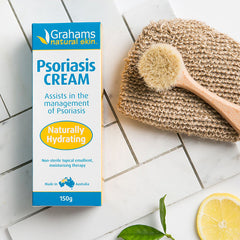
Management & controlling / prevention
While psoriasis cannot be cured, there are ways to prevent or lower the severity of this condition. Things to avoid include:
- Excessive drinking of alcohol
- Stress
- Extreme heat
- Powders
- Chemical based detergents & soaps
If you have any questions or concerns, check out our how to guide here or feel free to contact us!

